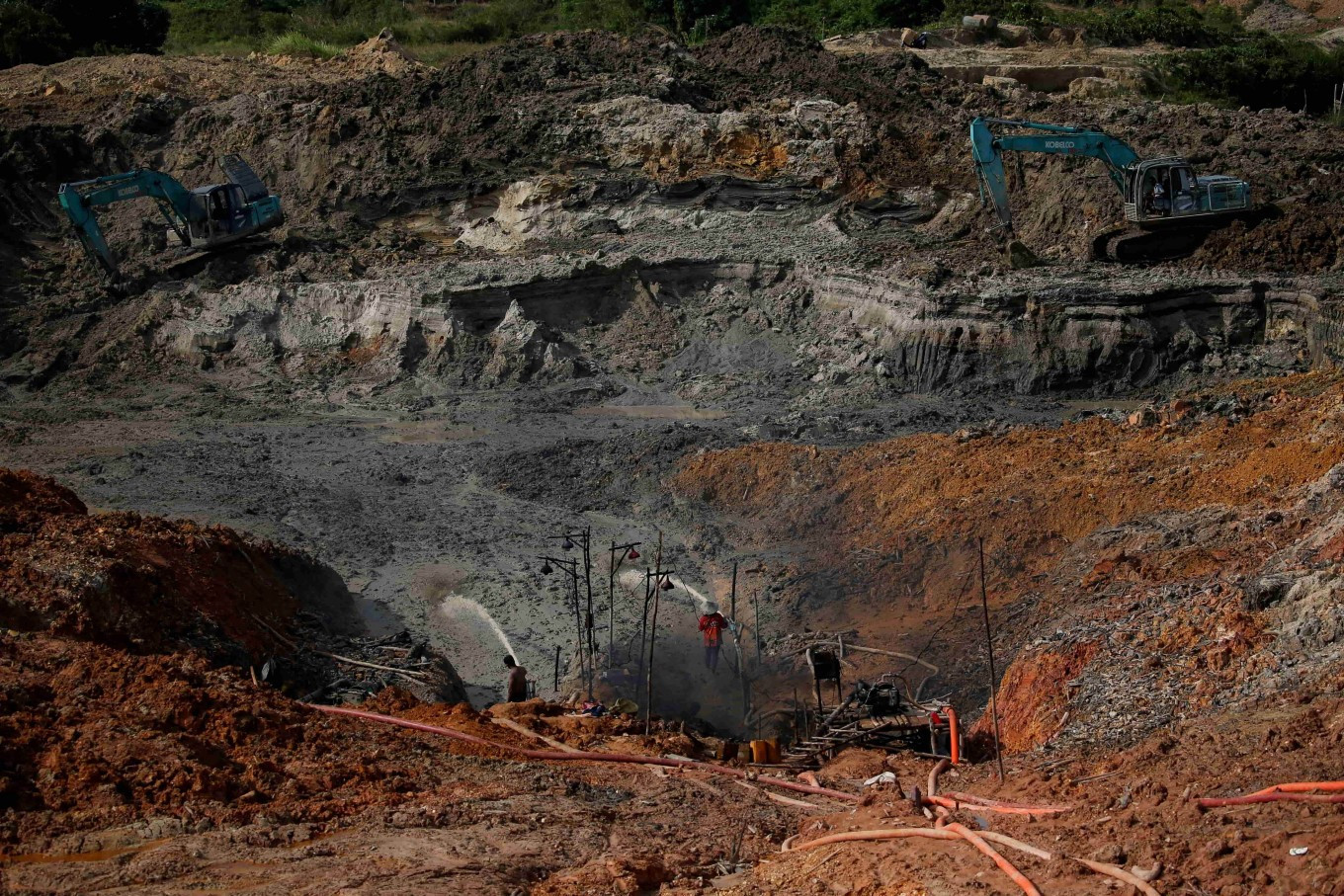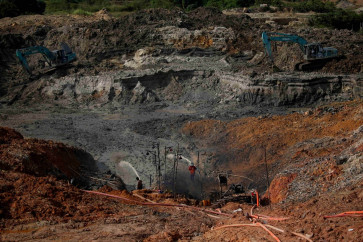Popular Reads
Top Results
Can't find what you're looking for?
View all search resultsPopular Reads
Top Results
Can't find what you're looking for?
View all search resultsAnalysis: Illegal mining in Indonesia isn’t hidden, it’s protected
Change text size
Gift Premium Articles
to Anyone
 Unlicensed miners work on April 29, 202, in a tin mining area in Toboali, on the southern shores of the island of Bangka, Bangka Belitung. Miners who continue working on land have to deploy expensive heavy machinery to dig deeper for tin ore as reserves dwindle. (Reuters/Willy Kurniawan) (Reuters/Willy Kurniawan)
Unlicensed miners work on April 29, 202, in a tin mining area in Toboali, on the southern shores of the island of Bangka, Bangka Belitung. Miners who continue working on land have to deploy expensive heavy machinery to dig deeper for tin ore as reserves dwindle. (Reuters/Willy Kurniawan) (Reuters/Willy Kurniawan)
I
llegal mining is hardly a hidden crime in Indonesia, it is an entrenched industry protected by powerful backers. The practice has persisted for decades, and remains unresolved even under President Prabowo Subianto’s administration. In his State of the Nation address, Prabowo pledged to confront active and retired police and military generals allegedly involved in the illegal mining business. Whether those words will translate into decisive action, and whether he is willing to target the true masterminds and their allies, remains to be seen.
Quoting law enforcement reports, Prabowo revealed there are around 1,063 illegal mining sites across the country, with estimated state losses reaching Rp 300 trillion annually. Days later after the State of Union address, he summoned ministers, including Energy and Mineral Resources Minister Bahlil Lahadalia, to “fix” the issue. Yet the challenge is immense: illegal mining spans commodities from coal to gold and nickel, each with its own forms of illegality, networks of actors and layers of protection.
Under the 2025 Mining Law, mining activities, from exploration to production, transportation, processing, refining and sales, require proper authorization. Permits include the Mining Business Permit (IUP), Special Mining Business Permit (IUPK) and People’s Mining Permit (IPR). Operating without them allows companies to avoid paying royalties, robbing the state of revenue while inflicting severe environmental damage. But the line between legal and illegal is often blurred. Loopholes are exploited, documents forged and unauthorized operations disguised under legitimate permits.
Such blurred boundaries were on display in Balikpapan, East Kalimantan, where the NGO Publish What You Pay (PWYP) Indonesia observed illegal miners using official shipping documents from companies holding IUPs to move their products through a local terminal. The miners operated openly, using heavy machinery and causing visible environmental destruction, yet faced no sanctions. The ease with which they worked suggested more than mere regulatory negligence; it pointed to the likelihood of protection from local authorities.
Illegal mining networks operate at every level of society and governance. They involve miners, financiers, landowners, middlemen, government officials and law enforcement officers who act as “backers.” Small-scale operations in villages may be shielded by local leaders, while larger ventures often have the support of regional politicians, business elites, and members of the police or military. Although the Corruption Eradication Commission (KPK) has the authority to pursue such cases, mining governance is fragmented across multiple agencies, making it easy for perpetrators to evade accountability and slowing reform efforts.
The involvement of security forces is particularly troubling. In Bangka Belitung, former PT Timah executives Ichwan Azwardi and Ahmad Haspani testified that illegal tin mining was unstoppable because it enjoyed police protection. A senior police officer, Brig. Gen. Mukti Juharsa, was even alleged to have managed a WhatsApp group coordinating smelter owners.
In West Sumatra’s Solok Selatan, the problem turned deadly when adjunct police commissioner (AKP) Dadang Iskandar, head of operations at the local police, shot and killed his colleague AKP Ryanto Ulil Anshar, who had been cracking down on illegal sand and gravel mining. Reports suggest Ulil’s murder stemmed from his refusal to release one of Dadang’s associates caught in the operation.


















